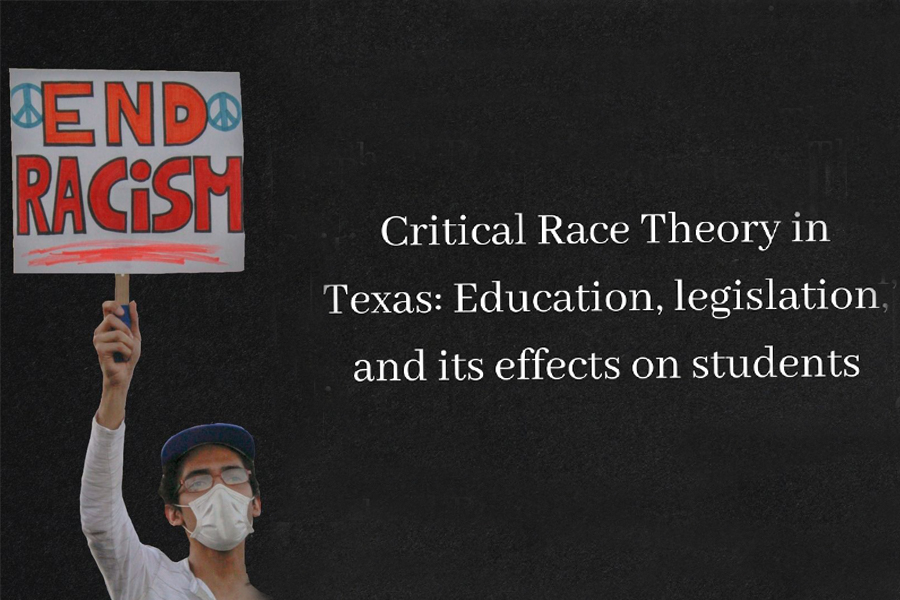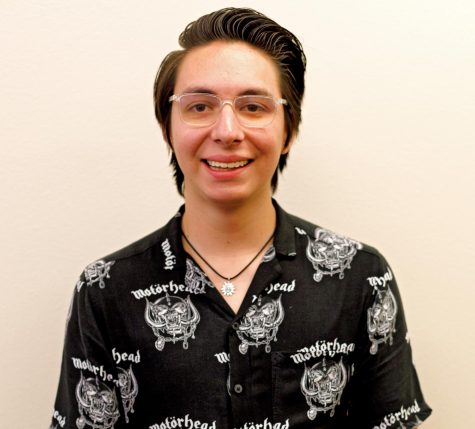Over the last couple of months, there have been a lot of discussions between politicians and academics on the topic of Critical Race Theory (CRT), the New York Time’s 1619 project, and on whether it should be taught in public schools.
Texas Gov. Greg Abbott and high-ranking Republican officials have passed bills in the Texas Senate that would prevent the teaching of CRT in K-12 public schools and prevent teachers from speaking about certain past and current events. New laws have been passed by Texas Republicans to ban the study of CRT in public schools and remove requirements to teach certain aspects of women’s rights, Native American history, and civil rights activists, as well as examine the negative implications of omitting CRT from the teaching curriculum. Some experts on race, sociology, and education agree that the banning of CRT in public schools will continue to cause harm in minority communities.
CRT is not someone’s personal bias toward somebody with a different skin tone, but rather it is the study of the effects of institutionalized racism, particularly in the form of legislation, on communities of color, such as redlining (otherwise known as housing discrimination). CRT states that race is not a biological factor, but a social issue.
“CRT is a field of study that basically acknowledges the fact that race is important historically and that it manifests in many ways throughout all of human enterprises,” said Tawanda Chabikwa, Ph.D., an assistant professor of UTEP’s Theatre and Dance department. “When I describe CRT, I always say it’s about looking at what I would call unsustainable ecology and practices surrounding the idea of race. There is an aspect, too, when talking about CRT (that) we are also acknowledging that race is really a theory and an idea. … It’s an idea that really messes with a lot of people’s minds, which is race doesn’t exist, but it does. It isn’t, biologically speaking. You and me could have a lot more in common than me and another African person. It’s really about trying to acknowledge and understand how race functions within human society.”
When talking about CRT, its impact in the public school system, and its application in higher education, some experts agree we need to expand students’ education in CRT. STEM majors are a group of college students who potentially lack this type of education the most. Associate Professor of Sociology and Anthropology Aurelia Lorena Murga, Ph.D., discussed the effects that engineers can have on a community when they do not understand the implications of their work.
“People that don’t get to have these conversations if they’re in STEM, and they are not having these courses, it’s not beneficial in the long run,” she said. “They have to work. For instance, an engineer might work in their office, but the things that they’re doing affects that community in the work that they’re doing takes shape. So, understanding those communities might be important to them.”
Additionally, CRT is about studying the systems in place that keep communities marginalized.
“It was laid out that way and I’m not saying that engineer was racist,” said Associate Dean of Research Maria Cristina Morales, Ph.D., for the College of Liberal Arts. “What I’m saying is having that consciousness that these things could happen. It’s not just about building that bridge. It’s about more than that. It’s about who are you keeping out, who are you letting in. That’s an important conversation to have and without the training you can’t really get there that easily.”
Morales said the lack of teaching CRT combined with the ways race impacts daily life is an issue that communities have grappled with for generations. It has become a mainstream topic due to top Republicans such as former president Donald Trump and Abbott calling for CRT to be banned in public education.
“The issue with this is that CRT is not being taught in public schools,” Morales said.
Some professors worry about their academic freedom, and their ability to teach the truth about their research. Socio-Cultural Foundations of Education Director and Chair Cesar A. Rossato, Ph.D., stressed the importance of teaching truth in history, and is concerned about any attempt to silence educators and intellectuals.
“Historically in the U.S. people try to avoid making children uncomfortable about the fact that the U.S. was constructed on the genocide of indigenous people and slavery,” Rossato said. “I was hired to teach CRT. Now you are passing laws trying to silence professors from doing their work – their scientific work. It is a violation of academic freedom, as you are trying to block people from doing their research.”
In Texas, Abbott signed the original HB 3979, now formally known as the “Critical Race Theory” bill, which targets how teachers are allowed to speak on current events and how racism is taught, according to the Texas Tribune. When signing the bill, Abbott said “more must be done to abolish the teaching of critical race theory.”
Abbott called a special session of the Texas Legislature that began July 8. During the session, previous bills on CRT, border security, elections, and abortion-inducing drugs that failed to pass through Congress were brought back up for further discussion, along with new bills proposed by legislators. One bill known as Senate Bill 3, proposed by Sen. Bryan Hughes (R-Mineola), removes the requirement to teach Native American history, work by civil rights activists Cesar Chavez and Dolores Huerta, Martin Luther King Jr, Susan B. Anthony, Frederick Douglas, writings of the Chicano movement and women’s suffrage. It also removes the requirement to teach that “the history of white supremacy, including but not limited to the institution of slavery, the eugenics movement, and the Ku Klux Klan, and the way in which it was morally wrong.”
“It’s not just the disempowerment of the lack of information that’s involved, it’s like the fear of critiquing the government,” Morales said. “Yet social change has come by with critiquing or pushing through to changing policies or keeping policies, and that’s how we have evolved as a society. If not, we would be back to where we were in the very beginning.”
The bills being considered in the special session include:
- House Bill 3979 by Rep. Steve Roth (R-The Woodlands) signed by the Governor. Limits what social studies teachers are allowed to talk about when it comes to the history of the United States and the treatment of people of color.
- Senate Bill 3 by Sen. Bryan Hughes (R-Mineola) reported engrossed. Removes requirements to teach that white supremacy is morally wrong and removes the teaching of people of color, and women.
- House Bill 2497 authored by multiple Republican legislators, signed by the Governor. Establishes the 1836 project, which promotes “patriotic education.”
- Senate Bill 2202 by Sen. Brandon Creighton (R-Conroe), referred to House Public Education Committee. Bans the teaching that “one race or sex is inherently superior to another race or sex; (2) an individual, by virtue of his or her race or sex, is inherently racist, sexist, or oppressive, whether consciously or unconsciously.”
Albert Silva-Fernandez may be reached at [email protected].











